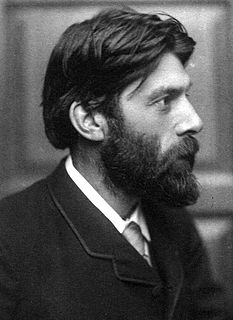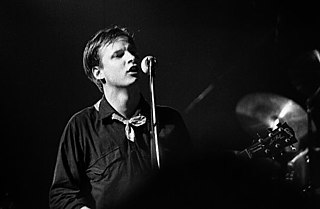A Quote by Henry Wadsworth Longfellow
Southward with fleet of ice Sailed the corsair Death; Wild and fast blew the blast, And the east-wind was his breath.
Related Quotes
When the supreme violence of a furious wind upon the sea sweeps over the waters the chief admiral of a fleet along with his mighty legions, does he not crave the gods' peace with vows and in his panic seek with prayers the peace of the winds and favouring breezes. Nonetheless, he is caught up in the furious hurricane and driven upon the shoals of death.
We feel the breath of the wind upon our cheeks, we see the dust and the leaves blowing before the wind, we see the vessels at sea driven swiftly towards their ports; but the wind itself remains invisible. Just so with the Spirit; we feel His breath upon our souls, we see the mighty things He does, but Himself we do not see. He is invisible, but He is real and perceptible.
So now, how did God produce this world?... The fable is that he breathed upon us. In his breath, his wind, came moisture and things began to grow... a message of hope. Nothing physical. How do you intend for your breath to become a work of art? The only way I can see it is that you prevent your breath from becoming a structure. As soon as your breath takes on the form of a room, you are a carpenter; you're not God.
An ordinary beginning, something that would have been forgotten had it been anyone but her. But as he shook her hand and met those striking emerald eyes, he knew before he'd taken his next breath that she was the one he could spend the rest of his life looking for but never find again. She seemed that good, that perfect, while a summer wind blew through the trees.
We must not think too unkindly even of the east wind. It is not, perhaps, a wind to be loved, even in its benignest moods; but there are seasons when I delight to feel its breath upon my cheek, though it be never advisable to throw open my bosom and take it into my heart, as I would its gentle sisters of the south and west.
The night was dark, and a cold wind blew, driving the clouds, furiously and fast, before it. There was one black, gloomy mass that seemed to follow him: not hurrying in the wild chase with the others, but lingering sullenly behind, and gliding darkly and stealthily on. He often looked back at this, and, more than once, stopped to let it pass over; but, somehow, when he went forward again, it was still behind him, coming mournfully and slowly up, like a shadowy funeral train.





































